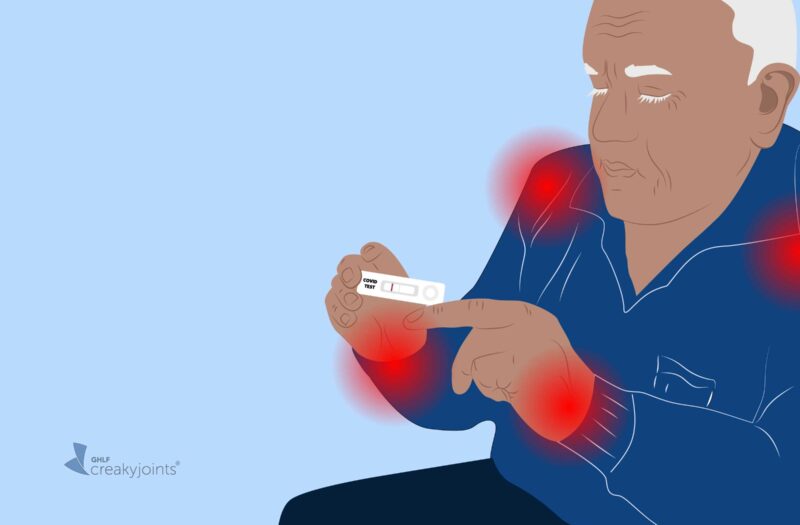Learn more about our FREE COVID-19 Patient Support Program for chronic illness patients and their loved ones.
While COVID-19 vaccines are highly effective against preventing hospitalization and death, emerging research shows that your age, level of immunosuppression, and other underlying conditions can put you at risk for complications even after being fully vaccination.
In a recent study, published in the Morbidity and Mortality Weekly Report from the U.S. Centers for Disease Control and Prevention (CDC), researchers analyzed outcomes of 1.2 million people who completed primary COVID-19 vaccination between December 2020 and October 2021. People who might have received additional doses and/or booster vaccine doses were included (1.2 percent received additional vaccine doses).
This means the study did not include people who received boosters or third doses of the vaccine.
Read about getting a 4th ‘booster’ dose of the COVID-19 vaccine for immunocompromised patients.
Severe COVID-19–associated outcomes (0.015 percent) or death (0.0033 percent) were rare overall, but the researchers identified several factors that increased these risks:
- Immunosuppression
- Age 65 and older
- Diabetes
- Chronic kidney disease
- Cardiac disease
- Pulmonary disease
- Neurologic disease
- Liver disease
Of the 1.2 million people analyzed, a total of 2,246 (18 per 10,000 vaccinated people) developed COVID-19 and 189 (1.5 per 10,000) had a severe outcome, including 36 who died (0.3 deaths per 10,000).
The researchers found that 77.7 percent of fully vaccinated adults who died had at least four of the above risk factors.
“This is not surprising at all, but it’s a study of 1.2 million people, so it’s an important confirmation of things that we’ve been writing about,” says Dorry Segev, MD, PhD, a transplant surgeon and researcher at Johns Hopkins Medicine, who was not involved in the study. “We’ve known for almost a year that there are groups of people — millions of people — who have suboptimal responses to their primary vaccination series, who need more protection.”
The occurrence of four or more risk factors increased with disease severity, from 18.8 percent (386) of individuals who had non-severe outcomes to 56.9 percent (87) of individuals who survived but had respiratory failure or were admitted to an ICU.
However, researchers did not find increased odds of severe outcomes associated with sex, race/ethnicity, time since primary vaccination, or whether the individual was infected when the Delta variant was rampant. (This study looked at infections during pre-Delta and Delta variant periods.)
Previous COVID-19 illness was associated with a lower risk of severe outcomes.
What This Means for You
Even if you’ve been fully boosted, you might still be at risk and require additional strategies to prevent severe COVID-19 outcomes. According to researchers, this may include:
- Chronic disease management
- Preventive measures to reduce exposure
- Additional primary and booster vaccine doses
- Effective pharmaceutical therapy to lower risk for severe outcomes
“There are two things that people need to focus on the most,” says Dr. Segev, who recently wrote an op-ed in the New York Times about how Omicron is not necessarily milder for the immunocompromised. “Do everything possible to prevent getting an infection — including all the recommended vaccine regimens. Then, make sure all of your medical issues are optimized so that if you do happen to get infected, which is quite common right now, you are in as good of shape as possible to withstand that infection.”
When you get an infection like COVID-19, underlying medical conditions reduce your physiological reserve for handling the infection, Dr. Segev adds.
Beyond the Study: The Omicron Wave
Taking preventive steps (vaccines, mask wearing, social distancing, avoiding large crowds) and managing any comorbidities is particularly important for immunocompromised patients in the age of the more infectious Omicron variant, which wasn’t studied as part of this research. Read more about Omicron and the immunocompromised in this guide for those at high risk for COVID-19.
“All of these findings, while they might not have been directly observed during the era of Omicron, most definitely apply to the era of Omicron,” says Dr. Segev. “Five months ago, I would have said that if you did the right things, you were almost guaranteed prevention. I think today, even if you do the right things, you are not fully guaranteed prevention — although you have a lot more protection than if you did the wrong things.”
That’s why it’s more important than ever to remain as vigilant as possible to avoid potential infection. “If people are vigilant with their prevention and medical optimization,” says Dr. Segev, “they are putting themselves in the strongest position to withstand the Omicron wave.”
Get Free Coronavirus Support for Chronic Illness Patients
Join the Global Healthy Living Foundation’s free COVID-19 Support Program for chronic illness patients and their families. We will be providing updated information, community support, and other resources tailored specifically to your health and safety.
Interview with Dorry Segev, MD, PhD, a transplant surgeon and researcher at Johns Hopkins Medicine.
Yek C, et al. Risk Factors for Severe COVID-19 Outcomes Among Persons Aged ≥18 Years Who Completed a Primary COVID-19 Vaccination Series — 465 Health Care Facilities, United States, December 2020–October 2021. Morbidity and Mortality Weekly Report. January 7, 2022. doi: https://doi.org/10.15585/mmwr.mm7101a4.
Segev D, et al. Omicron Isn’t Milder for Everyone, Like Our Patients. The New York Times. January 13, 2022. https://www.nytimes.com/2022/01/13/opinion/omicronimmunocompromised.html.






